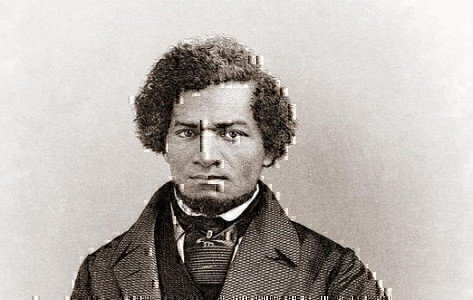Frederick Douglass escaped from slavery on September 3, 1838, aided by a disguise and job skills he had learned while forced to work in Baltimore’s shipyards.
Douglass posed as a sailor when he grabbed a train in Baltimore that was headed to Philadelphia. He was also given papers from a freed black sailor to help in the journey.
“My knowledge of ships and sailor’s talk came much to my assistance, for I knew a ship from stem to stern, and from keelson to cross-trees, and could talk sailor like an ‘old salt,’” he later said in his autobiography.
Once Douglass made the harrowing train trip to Philadelphia he was able to move on to New York City.
“My free life began on the third of September, 1838. On the morning of the fourth of that month, after an anxious and most perilous but safe journey, I found myself in the big city of New York, a a free man – one more added to the mighty throng which, like the confused waves of the troubled sea, surged to and fro between the lofty walls of Broadway,” he said.
The anniversary is also an occasion to note the 2013 publication of “TransAtlantic” by Colum McCann, who won the National Book Award for his previous novel “Let The Great World Spin.”
“TransAtlantic” is a lyrical novel about stories cutting across time, in Canada, Ireland, and the United States—and about how, as McCann’s website describes, “the most unassuming moments of grace have a way of rippling through time, space, and memory.”
National Public Radio reported that “TransAtlantic” was inspired by McCann learning that, in 1845, when Douglass was only 27 and still a slave, he went to Ireland to raise money for his anti-slavery campaign and to stir support for abolition. (This 1988 senior thesis at Yale tells more about that history.)
McCann told the NewsHour: “The real is imagined, in the sense that we shape our stories, so anything that even happens on the news gets shaped in a certain way and gets a texture …” He went on, “what I’m interested in is how the small anonymous moments, they can enter into the large narrative of the bigger, more public moments,” including when Frederick Douglass went to Ireland.













